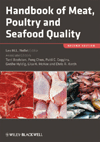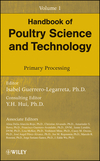USPOULTRY and the USPOULTRY Foundation are accepting research preproposals from colleges, universities and research facilities through Nov. 1, addressing combating clostridial diseases in poultry. Poultry health and well-being is a major focus for the broiler chicken industry in the current era of "no antibiotic ever" farming. Specifically, intestinal health has suffered greatly as a result of the restricted use of antibiotics on broiler farms that has resulted in increased mortality, decreased feed efficiency and increased economic costs for broiler farmers. One of the major concerns that has resurfaced is necrotic enteritis (NE), which is caused by toxin-producing virulent Clostridium perfringens bacterium. The global losses due to NE, one of the most devastating enteric diseases, are more than $6 billion per year, and finding "alternatives to antibiotics" is very important.
Gangrenous dermatitis (GD) is a common disease of turkeys and broiler chickens caused by various species of anaerobic and aerobic bacteria, including several clostridial species. The disease is characterized by a sudden increase in mortality and lesions in the skin, subcutaneous tissue, and the underlying muscles, usually over the keel, abdomen, thigh and wings of the bird. GD is a disease of considerable economic significance in poultry and occurs throughout the world.
The goal of this initiative is to encourage research that will enhance industry efforts to consider nonantibiotic alternatives and to improve understanding about the pathways for clostridial infections in poultry. The research areas of focus should be on identifying nonantibiotic approaches to prevent, reduce and control NE in broiler chickens and GD in turkeys and broiler chickens. The research should also define the pathogenesis of NE in broiler chickens and GD in turkeys and broiler chickens.
Visit the USPOULTRY website for complete instructions to submit a pre-proposal.
Source: U.S. Poultry & Egg Association







